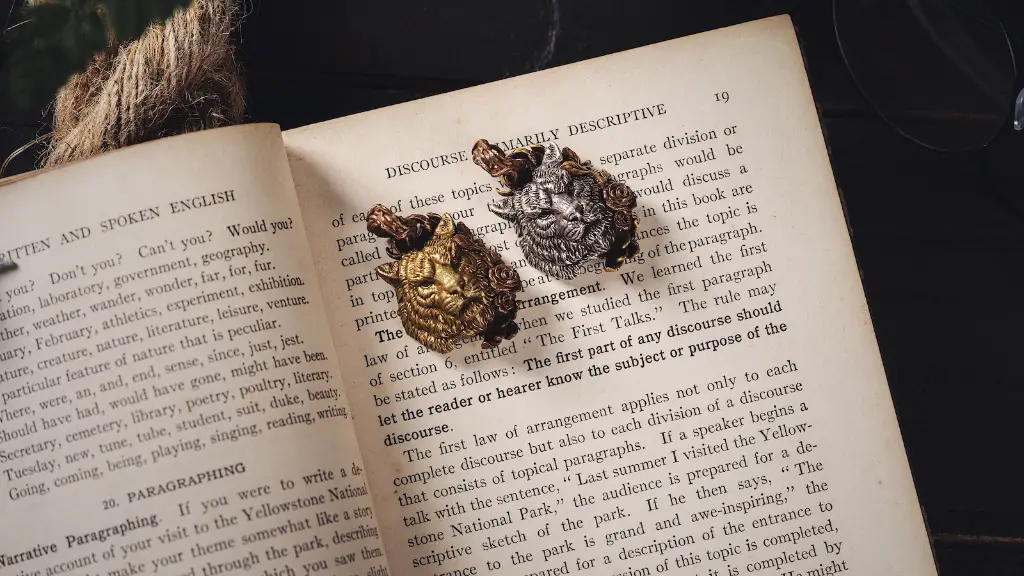Be Creative
Poetry is an expression of emotion, so it’s important for aspiring poets to be able to tap into their own creativity. Writing a poem is an art form and is not something that can be achieved by just anyone. Writing a good poem requires practice and a certain sense of imaginative expression. Many poets find their inspiration through the places they go, the people they meet, and even their own feelings. It’s important to keep an open mind and be willing to explore new ideas while writing. Seek out sources of inspiration and explore different styles and points of view.
Find Your Voice
When writing a poem, it is essential that you find your own voice. Finding your voice will give your poem personality and character. Crafting a poem is a personal journey and should reflect your opinion and emotions. A great way to find your voice is to read poetry written by others and take note of the themes, motifs, and language used. Experimenting with different poetic styles will also help you find your own unique style.
Stay Open-Minded
In order to become a better poet, staying open-minded is a must. Think outside of the box and be willing to try out new ideas. Remember that no idea is too small or too big. Think deeply about the words you are using and come up with ways to make them meaningful. Also, be open to changing your poem. Ideas can change and the poem can grow.
Re-read and Revise
After you’ve written your poem, it is important to go back and re-read it. Many poets will re-read their work multiple times to ensure that their poem reads fluently and that everything makes sense. As you’re reading, look for areas of improvement and try to modify the poem as needed. Check that your metaphors are clear and that your words are expressing the emotion you want them to express.
Seek Out Feedback
Getting feedback from others is an important part of becoming a better poet. Ask someone to read your poem and provide honest feedback. This will help you to identify areas in which you can improve and allow you to gain a new perspective. It’s also a great way to find constructive criticism which can help you become better at expressing yourself through poetry.
Fine-Tune the Flow
Creating a poetic flow is essential when writing a poem. Pay attention to the rhythm, repetition and rhyme when writing. Experiment with different sounds and word placements to create the perfect flow and make sure that your poem sounds natural. Fine-tuning the poem’s flow will create a more engaging piece.
Know Your Audience
When writing a poem, keep in mind who you’re writing for. Knowing your audience will help you to craft a poem tailored for them. This can also assist you in selecting the proper words and metaphors for the poem. Consider who will be reading the poem and let that guide your writing.
Practice, Practice, Practice
Writing a poem isn’t something that is achieved overnight. Writing can often become overwhelming and can lead to stagnation unless you continue to practice. Set aside time to work on your craft and try to write something new every day. See what works and doesn’t work and use those experiences to help you become a better poet.
Take Time to Reflect
Reflection is key when attempting to become a better poet. Once you’ve written the poem, take some time to sit and reflect on what you’ve written. Ask yourself questions such as: Did I accomplish what I set out to do? Did I express the emotion I wanted to? Did I make any mistakes that I need to fix? Taking time to reflect will help you to become a better poet in the long run.
Attend Writing Workshops
Attending workshops is a great way to learn from other poets and can be extremely beneficial for honing your craft. Writing workshops are typically run by seasoned poets and are filled with like-minded individuals who are looking to expand their artistic repertoire. Writers are encouraged to share their work and learn from others.
Seek Out Inspiration
Having a source of inspiration is key to becoming a better poet. Many great poets get their start by reading the works of other poets. Surround yourself with poetry, music and art and use them as a source of inspiration. You can also find inspiration in the people around you and the things you see and experience in your day-to-day life.
Be Confident
The biggest mistake many poets make is not believing in their own words. Trust the words that you are writing. Have confidence in your writing and never be afraid to express yourself. Remember that everyone goes through the same process and it takes time to become a better poet.
Explore Poetic Forms
Experimenting with different poetic forms can help broaden your poetic horizons. The use of different poetic forms, such as haiku or free verse can allow you to explore different topics and emotions in your writing. Taking time to explore different forms of poetry will help you become a more versatile writer.
Learn About Metaphors and Similes
Metaphors and similes are one of the most powerful tools that poets have in their arsenal. These techniques can help convey an emotion or feeling that words alone can’t. Learning how to use metaphors and similes effectively will help you create an even more powerful poem.
Take Poetry Courses
Poetry courses can be found almost anywhere. There are online courses, seminars, and even classes at local colleges and universities. Taking a poetry course can be extremely beneficial as you will be able to learn from experienced poets and get their input on your work. You can also learn new techniques and gain insight on the craft.
Read and Research
Reading and researching other poems is another great way to become a better poet. Reading the works of other poets can give you insight into their craft and help you hone your own. Researching and studying different forms of poetry can also be incredibly beneficial.
Cut the Fluff
One of the most important pieces of advice for poets is to remember to keep your poems tight and concise. Poems should have little to no filler and should get to the point quickly. Be willing to cut out anything that doesn’t add to the poem. Trimming the fat will allow your poem to flow more smoothly and be more powerful.
Collaborate with Other Poets
Collaborating with other poets can be extremely beneficial as it allows you to get feedback from experienced poets and to learn from each other. Collaborating also allows you to create something bigger than what you could have created on your own. Reach out to your local poetry community and find out if there are any collaborators looking for someone with your skill set.




